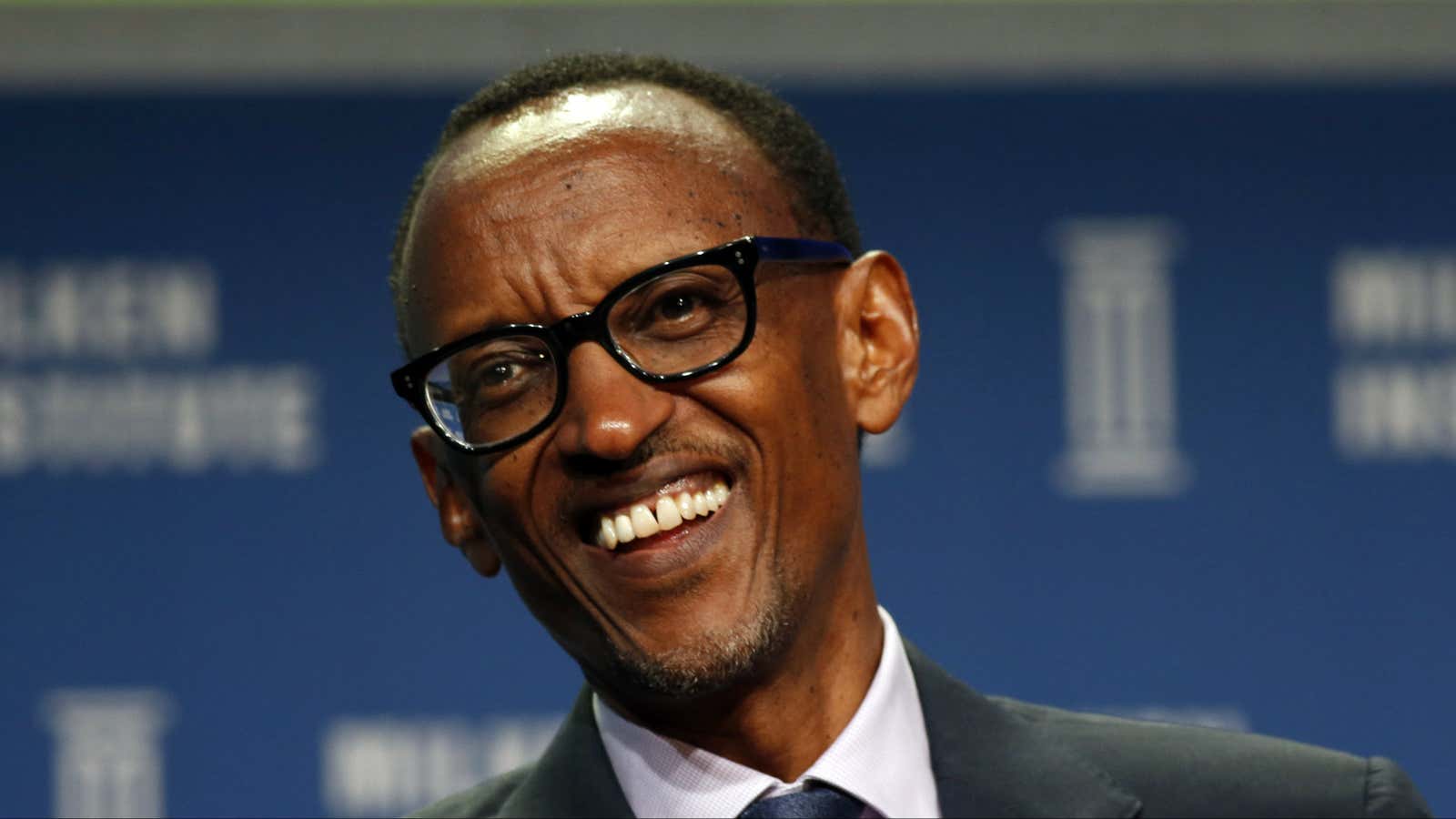For years, Rwanda’s president Paul Kagame has said that after his second term ends in 2017, he will leave office and retire. “Our constitution is clear on term limits. I have no intention, and no desire, to disrespect the constitution,” he once said.
But things change.
The country’s parliament has passed a motion for a referendum that aims to remove an article in the constitution preventing a president from serving more than two seven-year terms in office. Should voters approve the change, it opens the door for Kagame to stay in office until at least 2024.
Kagame, 57, led a rebel army in 1994 that ended the country’s genocide of 800,000 people, mostly Tutsis, at the hands of Hutu extremists. Following the war’s end, he served as minister of defense and vice-president, and was first elected president in 2003.
Kagame himself has declared no intention of seeking another term in office. And in April, he insisted that he was against changing the constitution to allow it. At the same time though, he said, he will respect the decision of voters, should they decide to amend it and allow him more time in office.
Last year he told students at Tufts University in Boston that, ”I think at some point we need to leave countries and people to decide their own affairs.” He added, “Why I’m saying that is because I’m asked when and whether I plan to leave office—right from the start of my first political term in office. It is as if I am here just to leave. I’m here to do business on behalf of Rwandans.”
This year a debate has emerged in African politics about leaders extending their stay in power beyond their constitutionally-allowed mandate. Rwanda’s neighbor, Burundi, has been embroiled in a political crisis since April following president Pierre Nkurunziza’s efforts to remain in office, despite being term-limited. In West Africa, a proposal to limit the region’s leaders to two-terms in office was voted down.
